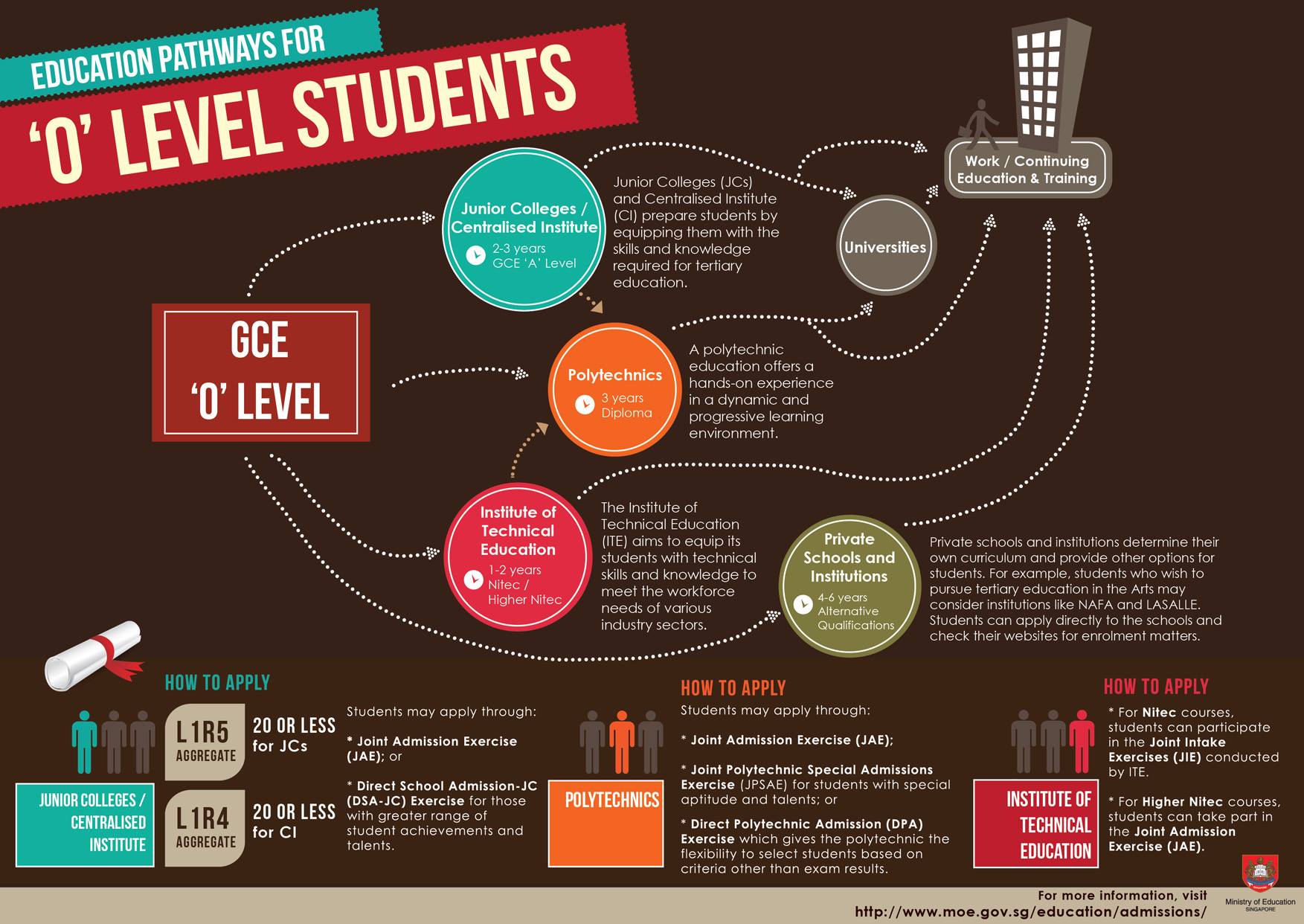Information on O-Level and A Level Career Scope in Pakistan , including Opportunities, Jobs, Salaries, Admissions Courses, Benefits, and Guidelines for a Better Future Life, is available here. Before specializing, students take the O-level, or ordinary level, which consists of independent tests in six to twelve disciplines. A-level advanced level exams are more difficult and are given in three or four disciplines. They are taken after O-levels.
Here is advice from experts on the subject of Pakistan’s Urdu O-Level and A-Level guides for readers. We could only see the pattern of enrolment and intermediate studies in Pakistan during the past several years. However, many students nowadays are keen to pursue O-Level and A-Level coursework. At AS Level, students normally take four courses, and at A Level, three subjects. Three A Levels are the normal entry requirement for universities in the UK.
Career guidance in English and Urdu for O-Level and A-Level students in Pakistan. Students increasingly favor this trend for a variety of advantageous reasons, which is why it is growing. This tendency, which favors level O and level A, was started by the British Council and the UK education department, and it is now seen in practically every nation.
Subject to completing the following requirements of the Scheme of Studies, GCE ‘O’ Level is regarded as being comparable to the Secondary School Certificate (SSC):
i) Pakistan Based Examinations:
Eight subjects, including three electives and the required English, Math, Urdu, Islamiyat, and Pakistan Studies.
[lwptoc]
O-Level and A Level Career Scope in Pakistan Opportunities Jobs Salary

You take 8 courses in the prior form of study, and nearly three courses in the latter method of study are required for specialization. Below are links to various articles offering expert advice. Please read them gently. What are the objectives and benefits of these study programs now? We’ll let you know that there are certain distinct reasons why all pupils find this topic to be the most appealing.
What is A-Levels?
After O-levels/Matriculation, there is an advanced study level called A Levels that is overseen by Cambridge International Examination. A-levels are a two-year program as well, however they are a little more challenging than FSc. You can select any combination of subjects for A-levels, from only math or physics to accounting and economics. You will receive a General Certificate of Education once you pass the A-levels.
Why should you choose A level?
There are a number of benefits to choosing A level as your educational system, including:
- There is no need to remember books for the A-levels because the exams are mostly conceptual.
- Since A-levels are widely accepted, you should choose them if you want to be able to enroll in top foreign colleges as well as domestic universities. Many international universities like A-levels.
- You may select from a wide range of topics based on your interests. You can also acquire simple virtual hints to comprehend your course.
- You should pursue A-levels if you wish to work in the fields of accounting, economics, or computer science.
- In contrast to FSc content, which is seldom updated, the A-level curriculum is often revised and draws on current and advanced knowledge.
- If you wish to study in the UK after your A levels, you do not need to pass the TOFEL and IELTS exams.
- A-level exams are given twice a year.
- If you pick FSc over A-levels, you will need to adapt to the local educational system, making A-levels a preferable option for students with O-Levels.
What is O Level Students?
When choosing the topics they will take for their O’level exams, students in O’levels get their first taste of real-world experience. Anyone without a solid future plan could find this moment to be intimidating. To begin with, not having a clear plan is totally OK because you are still young and have plenty of time to figure your life out.
Guide to Subject Choice
Having said that, it is usually wise to have a general notion. Finding out what truly interests you or makes you happy is the greatest place to start. Start by working around one or two topics in which you are actually interested. For instance, if biology is your area of interest, it makes sense for you to choose the two disciplines that go along with it—chemistry and physics.
Even better, alter things up and choose something more unusual, like environmental studies. If economics interests you, you’re in luck since it is a bit more diversified topic because it is a social science subject by nature, but it also serves as a basis for many sectors of business and commerce as well as being a field of study in and of itself.
If you enjoy economics, you may mix it with accounting and business studies in the conventional way or with a subject from the social sciences, like sociology.Several General Hints
1.Don’t overlook the fundamentals:
It’s necessary to set no boundaries for yourself at a young age, but it’s as crucial to avoid acting impulsively and without consideration. For instance, students sometimes neglect the value of their mandatory subjects, especially the more infamous mandatory subjects, Islamiat and Pakistan Studies, as they get consumed with selecting and excelling in their electives and managing a minimum of eight subjects.
There are two key elements at play here, the first of which is that they are straightforward topics to score well in, and the more A/A*s you get, the better. Your certificate of equivalence is the second consideration.
An equivalency certificate from IBCC, which converts a letter grade from Cambridge to a local percentage, is sometimes required for O’level pupils applying to local institutions. Additionally, while computing a percentage, you can exclude an optional but not a required topic, such as Islamiat or Pakistan Studies.
2. Avoid overexcitement:
It is extremely typical for students to become overexcited and overwhelmed when they see the variety of disciplines accessible to them. They take on more things than they should because they can’t decide what they want to do, they want to try everything, or occasionally they just want to make a statement.
Being intelligent is just as essential as being varied, if not more so. Know your limits and only try what you can handle. Instead of attempting to take 12 or 13 topics, try to limit yourself to 10 or less so that you have a choice and the workload is manageable. Always keep in mind that you don’t have to accomplish everything and that your own needs and mental health come first.
3. Keep your Attention:
O’levels are the first step toward your practical life, but it doesn’t imply they’re any less significant than the following phases. Even while you won’t be asked for your transcript when applying for employment, schools and universities will, and those institutions will more or less dictate how your life will be structured.
Students who aspire to pursue careers in regionally unorthodox industries like filmmaking, theater, media, etc. frequently become demoralized by the limited possibilities accessible to them and end up slacking.
Even students with sound plans and conventional career goals, like those in engineering or medicine, have a tendency to underestimate the level of competition in such professions since there are so many alternatives accessible to them. It’s critical to keep in mind that these outcomes will serve as the cornerstone of your daily existence, so you must offer them everything you have.
Benefits of Studying O-Level & A Level
While BISE no longer administers alternative certifications in Pakistan, other examination bodies do. The General Certificate of Education (or GCE) is the most popular substitute, replacing SSC and HSSC with the equivalent Ordinary Level (or O Level) and Advanced Level (or A Level).
There are several advantages if you are a Pakistani student who has chosen to pursue these level O and level A studies. First of all, the O-Level and A-Level programs are entirely practical in nature. Exam questions often contain questions based on ideas, and these findings do not support the packed method. The study plan in this course is updated every two years. Everything in the O-level and A-level curriculum given and taught at Pakistani institutions is in line with those of foreign academic institutions. Students enjoy this medium better because of the conceptual approach that has been taught in these level O and level A courses.
You may also easily be accepted to foreign and international colleges to pursue your higher education studies if you participate in these programs. You will be given preference, for instance, if you wish to study business administration at an overseas institution and have completed your O-Level and A-Level coursework.
These O-Level and A-Level subjects will also improve your prospects of finding employment overseas. Candidates with O-Level and A-Level funds are favoured in the job market in the UK and abroad. Your general vocabulary and your ability to speak English will both improve as a result of this study method.
All available facts and data regarding the breadth of Pakistan’s Urdu O-Level and A-Level guide are presented here. Therefore, if you have completed your eighth-class examinations and are considering your options, consider if you should enroll in level A courses and internships.
O-Level and A Level Career Scope in Pakistan
Scope of O Level in Pakistan
After finishing their O levels, students in Pakistan also have several options. In Pakistan, O-level pupils are always given precedence in institutions. Technically speaking, the extensive syllabus is not an issue because students have three years to prepare and can easily cover everything.
Scope of a level in Pakistan
A Levels are also suitable if you desire to pursue a career in engineering, business, or any number of other fields. Ilmibook asserts that if you intend to pursue science-related degree programs in Pakistan after high school, the fsc may be a better option for you.

I agree I am USA educated
I am very confused to choose O level or matric and i am not able to decide that which field is suitable for me.My mom is not giving me permission to do O level and i am very upset of these things.Please help me to decide my studies.PLEASE PLEASE PLEASE PLEASE PLEASE PLEASE PLEASE PLEASE PLEASE PLEASE PLEASE PLEASE PLEASE PLEASE PLEASE PLEASE PLEASE PLEASE PLEASE
HELP ME
REGARDS
FAJAR FATIMA
GUJRANWALA
Hi if u want to study at international scale go for o level or IGCSE.